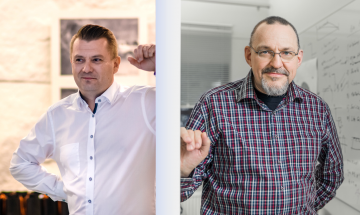Reinventing the economy
The waves of technological innovations and development of our society and economy have gone very much hand in hand since the start of Industrial Revolution in 1785.
A Soviet Union Economist Nikolai Kondratiev published his theory of Innovation Cycles, today called as Kondratiev’s Waves, in 1925. Kondratiev was later executed by Stalin because of his pro market economy ideas.
This almost hundred years old theory seems to be extremely valid also today in explaining why the world’s economy seems to be running out of growth steam. We are experiencing a situation where interest rates are negative, growth and investments are sluggish and economists have difficulties in explaining what is going on.
Since the industrial revolution, the innovation has arrived in waves, each starting with disruptive new technologies and ending with a global depression - until the next wave of innovation emerges and starts to drive investments and growth again. These waves of innovation have transformed our industries, societies and economies almost beyond recognition.
The modern world has this far gone through five waves of innovation:
- 1st Wave, the age of iron, water power and mechanized textile industry, starting in 1785
- 2nd Wave: the age of steam and railways, starting 1845
- 3rd Wave: the age of electricity, motor car and chemicals, starting 1900
- 4th Wave: the age of aviation, space and electronics, starting 1950
- 5th, and the last Wave: the age of digital networks, information and communication technology and biotechnology, starting around 1980
It seems that this last wave of innovation is coming to an end and this may explain the current depression and crisis of the global economy. If Kondratiev’s theory proves out to be right once again, we will not see sustainable economic growth until the next wave of innovation emerges and starts to drive economic growth again.
It is very important to notice, that all five earlier waves have been underpinned by access to cheap fossil energy and thinking that the Earth's natural resources are abundant and unlimited.
This paradigm of resource abundancy is changing rapidly.
We are facing perhaps the most serious global threat for the human civilization yet seen – the climate change. The actions and commitments agreed in Paris were good but they are far too insufficient to address this huge threat and the commitments made in Paris would still take us to 3-3.5 degrees of warming. We need to cut CO2 emissions by 80-90% by 2050 to limit warming to below 2 degrees. Some scientists estimate that we have to become 100% carbon neutral already by 2050.
The futurists are predicting that some of the key elements of the next – i.e. Sixth – wave of innovation will be:
- Reinventing the economy so that it is sustainable and respects the Earth’s planetary boundaries of natural resources. This includes reinventing the whole energy paradigm to replace fossil energy with low carbon sources – to achieve a carbon neutral society.
- It also includes a transformation from linear consumption economy to circular economy where waste is seen as a resource and the consumption of limited natural resources is brought to a sustainable level. Good examples of such resources are Phosphor, a necessary element in feeding living organisms and bound to run out one day, and clean drinking water.
- The fruit of the fifth wave of innovation – ICT technology – will become a horizontal force in the sixth wave leading to massive disruption and redistribution of value in all businesses, value chains, and across country borders. Many businesses will literaly be blown to bits. There will be many big losers and many new winners.
Addressing these mega challenges will need a lot of new innovations and technologies and they will drive huge investments. International Energy Agency has estimated that within next twenty years 14 trillion USD investments are needed to just energy efficiency alone and 11 trillion to establish low carbon energy production. These are astronomical sums.
Addressing the huge challenges of sustainable development will create tremendous business opportunities for companies and nations who have innovative solutions to offer.
As a summary, the Sixth wave of innovation is emerging and its core will be in reinventing the whole economy so that the human civilization can live on this planet within the boundaries of our Earth’s natural resources in a sustainable manner. The chances of finding another planet where we all can move to are too tiny, so we have only one option left. And we need to act with urgency.
Pertti Korhonen
CEO
Outotec Oyj
This article was originally published as a blog post in Finnish Technology Industries' CEO Blog.


